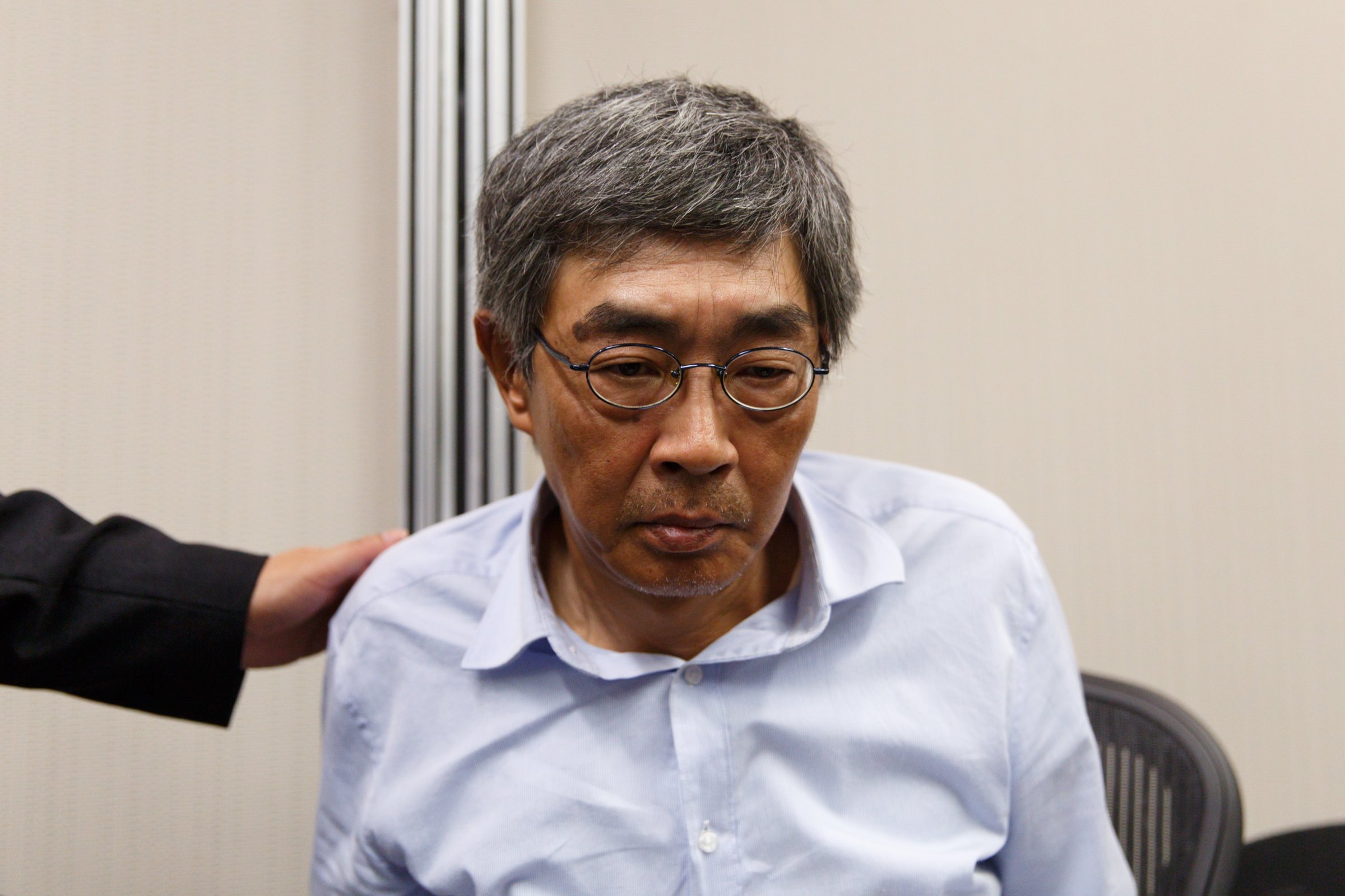
Hours after Hong Kong bookseller Lam Wing-kee defiantly told reporters on Thursday evening that Chinese authorities had detained him for eight months (five of them in solitary confinement), and forced him to issue a scripted TV confession for trading in banned books, China’s Global Times delivered what seemed like a state-sanctioned riposte.
The daily, which is affiliated with the Chinese Communist Party and specializes in flag-waving editorials, dismissed international condemnation of the mysterious disappearances of five Hong Kong–connected booksellers who specialized in scurrilous paperbacks skewering — with little documentary evidence — China’s political elite.
All five had ended up in detention on the mainland — even though two had last been seen outside of mainland China, prompting worries that they had been abducted by agents of the Chinese state. However, the Global Times editorial followed a predictable line — at least initially. It warned that although Hong Kong is governed by different laws from the rest of China, “all different forces in Hong Kong must respect the political system in China. It’s not right to take actions which may harm the state security and the political stability in mainland China.”
The Global Times also noted, with apparent approval, that Lam “confirmed that he had not been abused or tortured on the mainland.” The story did not mention that Lam said he had been blindfolded and handcuffed during his detention, that he had been denied access to lawyers or the outside world, or that, buy his account, security personnel were so worried that he might commit suicide that they tied a string to his toothbrush and held onto it, in case he tried to shove it down his throat and choke himself to death.
But by later on Friday morning, the link to the Global Times article had been severed. It joined the millions of other web pages in China that have simply disappeared, presumably courtesy of the nation’s censorship machine. In fact, the editorial, which was posted at 3 a.m. on Friday, was a curious one. Although it lectured Hong Kong residents on the limits of the so-called “one country, two systems” structure that allows the territory far more political autonomy than the mainland, the editorial also noted that the “mainland should respect Hong Kong’s independent jurisdiction more strictly, and understand the public opinion in Hong Kong is highly sensitive in these issues.” Such recognition of local Hong Kong sentiment, which has grown ever more wary of mainland interference, is rarely expressed in official Chinese circles.
Furthermore, while the editorial took care to refute Lam’s contentions that he and his fellow booksellers had been victimized by the Chinese state, the piece also laid out much of what the detained bookseller had said in his Thursday press conference. The editorial described how Lam said that a director had fed him lines for his televised confession. It specified how Lam, a native of Hong Kong, said the booksellers’ fates showed how the “Chinese government has forced Hong Kong people into a dead end.”
Notably, this detailed recounting appeared to be the only instance in which Lam’s press conference was covered by the Chinese state press. Otherwise, media consumers in mainland China were left in the dark. Indeed, one mainland-based friend of another of the booksellers said on Friday afternoon that he had no idea that Lam had been allowed to return to Hong Kong and had given his dramatic Hong Kong press conference. (The friend declined to speak further about the case given the sensitivities involved.)
The five booksellers began disappearing last year, from Thailand, southern China and Hong Kong. In October, Gui Minhai, a Swedish citizen and owner of Mighty Current Media, disappeared from outside his Thai seaside condominium in the company of an unidentified Chinese man. Later, other Chinese men visited his apartment and took his laptop away, according to one of the building’s employees. Gui turned up in January on Chinese TV confessing, in stilted fashion, to having caused the death of a young Chinese woman during a hit-and-run incident 12 years before. He is still in official custody on the mainland.
In late December, bookseller Lee Bo, a British passport holder also known as Paul Lee, disappeared from Hong Kong, only to resurface on the mainland, despite immigration authorities never having recorded his exit from the territory. Lee eventually returned to Hong Kong for a period but refused to discuss what happened to him, stating that he had gone to the mainland of his own volition. Two other booksellers disappeared, like Lam, when they were traveling in southern China. Like Lee, they also returned to Hong Kong but declined to discuss their situations and have since traveled back to the mainland. In his Thursday tell-all, Lam said that “out of the five, I’m in a slightly different position … At least I don’t have family on the mainland, only my girlfriend.”
The pressure continues. Two cellphone numbers for Gui’s sisters living in China have been disconnected. In January, one sister told TIME that she knew nothing of Gui’s televised confession and hung up the phone. One of the authors of books published by Mighty Current, who lives in the West, says that Lam’s defiant press conference notwithstanding, a climate of fear reigns among the stable of writers. “I dare not go to China or to Hong Kong,” he says. “There is no guarantee of my safety. The [Chinese] government will stop at nothing.”
— With reporting by Yang Siqi / Beijing
More Must-Reads from TIME
- Cybersecurity Experts Are Sounding the Alarm on DOGE
- Meet the 2025 Women of the Year
- The Harsh Truth About Disability Inclusion
- Why Do More Young Adults Have Cancer?
- Colman Domingo Leads With Radical Love
- How to Get Better at Doing Things Alone
- Michelle Zauner Stares Down the Darkness
Contact us at letters@time.com